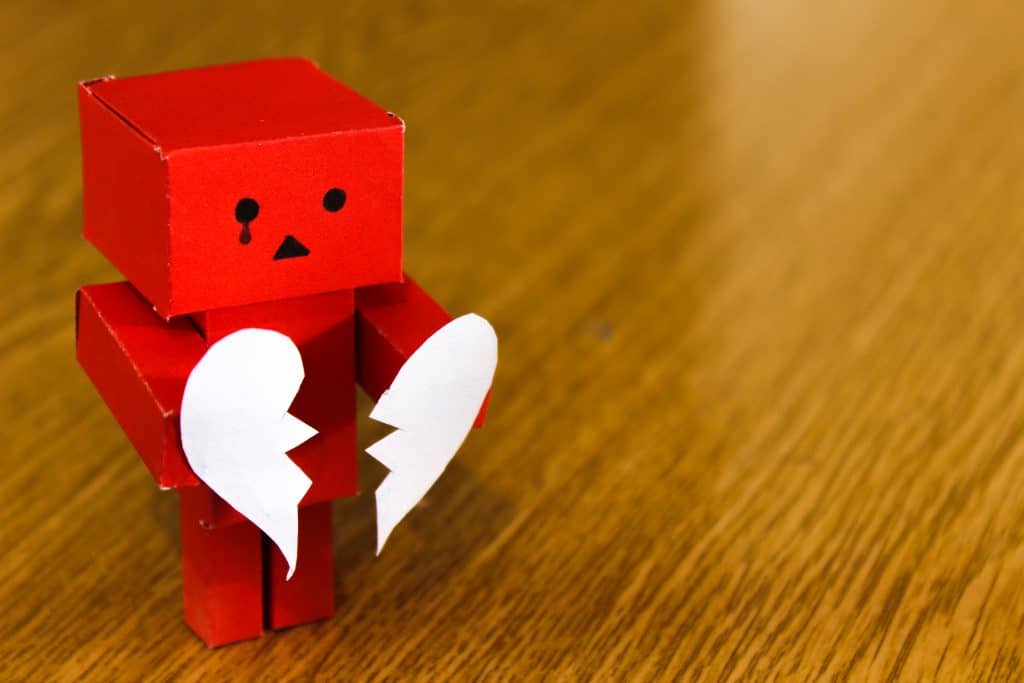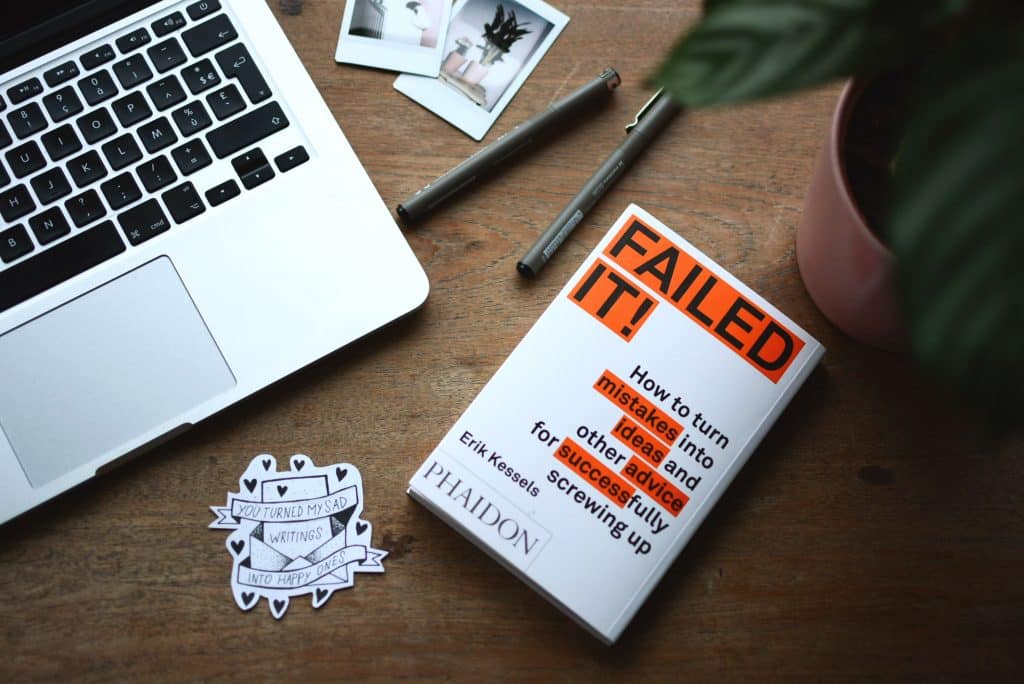
Whether it’s not being chosen for that job you thought you were perfect for, being passed up for promotion, not being invited out with the ladies at work, or your long-term partner ending the relationship, rejection stings. In fact, no matter how much we try to avoid rejection hurting, we’re hardwired to experience pain when rejected. A 2011 study by the University of Michigan (Wager et al) found that when people were placed in an MRI machine and asked to recall a recent rejection, the areas of the brain activated were the same as those activated when we experience physical pain.
You may be interested to know, however, that the greatest pain caused by rejection is actually self-inflicted. If you’re wondering how this is possible, think back to the last time you felt rejected and try to recall how it made you feel about yourself. What kind of thoughts came up about you as a person? The initial pain of rejection is exacerbated by what we tell ourselves about the experience and what we conclude about ourselves and our future. To make things a bit clearer, I’ll outline a number of tools or techniques which can not only help you pick yourself up faster after rejection, but can also help you build a stronger, more resilient you.
Allow yourself to feel the pain
It’s very tempting to try to distract yourself from the full force of the pain when you feel rejected. This is the point at which you may drink excessively, quickly jump into another relationship, make impulsive decisions or keep so busy that you have less time to feel anything. However, such behaviour often prolongs the pain and causes other problems along the way. When you’re struggling, call someone you trust and talk about how you feel. Cry. Shout and scream if you need to. The most important thing is to allow yourself to grieve so that, when the time is right, you’ll move on to bigger and brighter things.
Silence the inner critic
We all have an inner critic. This is that internal voice which pops up at our most vulnerable moments reminding us of our shortcomings, just in case we didn’t feel bad enough already!! Our critical inner voice is formed from early life experiences when we were criticised or mocked when our ‘self’ was so young and fragile that it took such words or messages as facts about our self-worth. Years ago, before I even knew my inner critic was a thing, I never applied for promotions or higher positions. Whenever I wanted to, my inner critic would tell me – ‘Don’t be so stupid. You’re not good enough for that job. Don’t make a fool of yourself’. Needless to say, it always stopped me in my tracks. Some of you may resonate with this. If you do, I’d encourage you to work on the origin of this voice and on boosting your self-worth. I’d also encourage you to adopt a kinder, more compassionate voice which affirms your worth. I always suggest to my clients to have a ‘zero tolerance policy’ on self-criticism. If you wouldn’t berate and tear down someone you care about, then why do it to yourself?

Be compassionate with yourself
I’m often at the receiving end of blank, confused stares when I suggest to people that they need to be more compassionate with themselves. Self-compassion is not something we’re taught when we’re young, but it’s so crucial. Adopting a more self-compassionate stance involves treating ourselves as we would someone we care about, such as a friend, a child, and so on. At times when we experience rejection, it would involve not being self-critical, not judging ourselves and giving ourselves the permission and time to work through our feelings.
Ditch the rose-tinted glasses
Isn’t it amazing how attractive and desirable something or someone appears when you can’t have them? When a relationship ends, we have a tendency to idealise the person who left us and focus only on the good aspects of the relationship, playing these memories over and over in our heads. The same can also happen when we lose a job or don’t get the job or opportunity we applied for. We imagine the job we wanted as our ‘dream job’ although we have no way of knowing if we would have even liked it. Whether it was a relationship or something else which ended, when you start to idealise the lost object, take the time to also remember the aspects of the person or job etc you didn’t like. Recall the less happy times or the times you felt frustrated or unsatisfied. This isn’t ‘sour grapes’ but a way to have a more balanced and realistic outlook on what was lost.
Learn more about yourself
How we react to rejection is often closely linked with past experiences, particularly those from our childhood. Rejection is likely to feel more painful if we felt rejected by a parent or experienced exclusion or severe bullying as children. As adults, we often unconsciously seek out partners or experiences which re-create our past trauma in an unconscious attempt to heal the earlier wound. You may always find yourself in relationships with unavailable or abusive partners, for instance. Use a painful rejection to learn more about yourself and how your unresolved issues from the past are affecting you in the present. Therapy or counselling may be a good idea if you find this process too difficult or painful.

Believe in yourself
I recall once having a conversation with someone who told me that her self-esteem would never recover from her partner leaving her for someone else. Whilst such a situation would hurt greatly and may lead someone to question themselves or wonder ‘what does she have which I don’t?’ concluding you’re unworthy or inadequate would be an incorrect assumption. And it would be an assumption based on a belief that our validity and worth as people is dependent on external sources – a job title, getting into the best university, a right swipe on Tinder, being in a relationship and so on.
Rejection hurts no matter how you feel about yourself, but if you have low self-esteem already or don’t value yourself enough, being rejected reinforces feelings of inadequacy. Life experiences and the society we grow up in often give us reason to believe that we’re only good enough if we have the right job, a loving partner, are popular and beautiful, and so on. We seek validation of our worth from external factors. Therefore, if someone leaves us or our colleagues don’t invite us out, or we don’t get promoted, we conclude that we’re hopeless and not worth knowing. However, we are all enough just as we are, and whilst a meaningful job, nice house etc can help us feel fulfilled, we can only be truly happy if we love ourselves just as we are. So, you can either conclude that you’re worthless when your partner leaves you, or you can conclude that while it hurts deeply, him/her not wanting you doesn’t say anything about you as a person. You are good enough just as you are.
Adopt a growth mindset
Much of the hurt and struggle of rejection isn’t based on the loss itself but on what we conclude about ourselves and our future. A career setback doesn’t mean that you’ll never reach your goals. It may mean simply waiting a little longer, changing direction, or reinventing yourself. Failure or rejection can be an opportunity for you to take stock, re-assess what you want, and learn from the experience. Failure helps us to grow and build resilience, making future setbacks easier to deal with.
Lastly, and certainly not of least importance, I’d like to encourage you to reach out to people who care for you, take good care of yourself and trust that the pain and disappointment will pass. If anything I’ve written resonates with you and you wish to learn more, do seek the guidance and support of a professional therapist or counsellor. It will not only make things more bearable in the short-term but will help you to develop more resilience and strength to cope with life’s future challenges.






